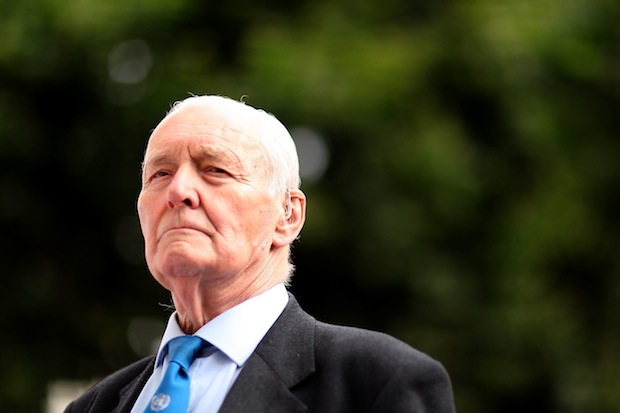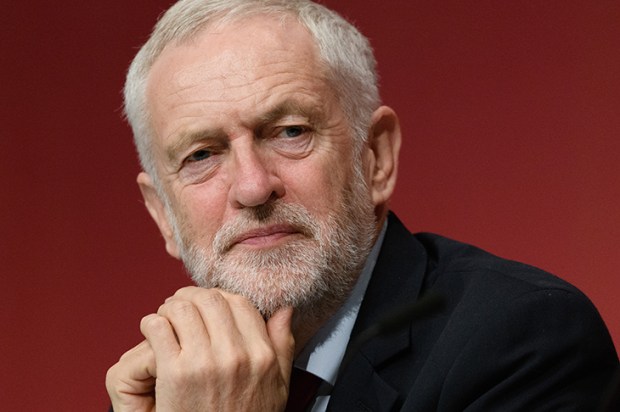I could start by remarking that we should not speak ill of the dead, quoting the pertinent Latin phrase: de mortuis nil nisi bonum (‘of the dead, only good’). But this would be to miss a key qualification because the whole quote (from Diogenes Laertius, circa ad 300) adds ‘dicendum est’: ‘is to be said’.
And that puts a different complexion on things. Commentators have preferred to describe the advice as an established social convention rather than necessarily their own opinion. Indeed it is often used as a sly way of indicating (without stating) the speaker’s disapproval of the deceased.
But if the phrase has been thrown once at my head by my newspaper readers this week, it has been thrown a score of times.
I have sailed into a storm over the late Tony Benn. A column I wrote for the Times the day after his death laid into his legend, and readers’ subsequent comments (though many of them supportive) underline how familiar we British are with the idea that the (recently) dead should not be criticised.
The BBC, meanwhile, has gone crazy for Mr Benn, apparently feeling no duty to achieve the balance of bouquets with brickbats that it made such elaborate efforts to contrive when Margaret Thatcher died; and even clearing the airwaves to rebroadcast favourites from his Secret Diary of Adrian Mole-style diaries: a grisly example of self-absorption without self-examination.
In an intimate diary it is to be hoped that awkward self-criticism and uncomfortable self-knowledge of the kind the diarist has previously shrunk from admitting in public will emerge in the small-hours silence of the confessional; but in Mr Benn’s case the widely promoted modesty of the public man is cast aside in the confessional, where immodesty is displayed in all its horror.
Twelve years ago Lord (Tom) McNally, one of Mr Benn’s old comrades-in-arms, remarked (as the Independent’s John Rentoul recalled): ‘One of the reasons why I want to live a long life is to be around when Wedgie pops his clogs and they all start maudlin remembrances of what a great old man he was and I have to remind them what a treacherous bastard he was!’
I would not go quite so far; Tony Benn was one of the finest political orators it has been my privilege to hear; and his behaviour towards people who didn’t matter was always kind. But it’s fair to say that his political prescriptions would have been ruinous for his party and for Britain; and he left many close colleagues nursing an undying resentment of the ways in which he undermined them.
I rehearsed this assessment in what I wrote. Probably the most oft-repeated rebuke I received from my readers runs, typically, thus: ‘A balanced assessment of an individual’s contribution to history can await unhurried consideration. But while the corpse is not yet cold we should reflect on the deceased’s personal qualities, and mourn him as an individual.’
I totally disagree. We obituarise people who are in some way celebrated, people who have done big, notable things in their lives. A useful and honest obituary has to go straight to these, the reason why the deceased’s death is newsworthy in the first place. All the rest, the ‘personal’ picture, is secondary, helpful though it may be in warming and enlivening a piece of writing.
It may be true — and probably is — that a man like Mr Benn was a faithful and devoted husband and an adoring father, and I myself can testify to his meticulous regard for the ordinary courtesies of polite society. But thousands of people die every day in our country, and scores of them will be distinguished by their kindness, devotion and courtesy. Their obituaries are never written: they rest, as George Eliot remarked, in unvisited tombs. We — and by ‘we’ I mean the public at large — are only interested in a man like Benn for what he achieved as a politician.
He achieved (I wrote) little. He made a splash, but as the waves subside we’ve been able to see he was wrong about almost everything, preached a creed that would have been disastrous if followed, and was ruthless and guileful in shin-kicking and privately wounding Labour comrades who tried to teach a more realistic view of politics. On the whole polite to enemies outside his circle, he was merciless towards colleagues within it and often less than straightforward in his dealings with some of them.
There’s no point in my repeating what I’ve already written elsewhere because my point here is not so much about one individual to whom — in life as well as death — I think we have been too kind; but about honesty generally in our immediate treatment of the deaths of the famous. When I submit that a balanced view, warts and all, is the objective, I suppose few will disagree. But what of my readers’ opinion that this should wait until later?
Until later? They can only mean until the subject has ceased to be of great public interest. We should all like discussion of our defects to be postponed until little notice will be taken; and you and I could debate now the follies of Herbert Morrison, Stafford Cripps or Anthony Crosland, but we should not find much of an audience. To some degree a reputation is fixed (or, at least, the first draft of a reputation is issued) in the days and weeks after death. The period during which, metaphorically, the corpse has yet to go cold may be critical in striking the tone.
Editors keep on file the pre-drafted obituaries they will sooner or later be needing. Pinned to each draft should be an anti-obituary, a hatchet-job; and when the time comes the dialectic should be rehearsed: thesis coolly assessed against antithesis and — as Karl Marx and Tony Benn, at least, should agree — a synthesis found.
Got something to add? Join the discussion and comment below.
Get 10 issues for just $10
Subscribe to The Spectator Australia today for the next 10 magazine issues, plus full online access, for just $10.
You might disagree with half of it, but you’ll enjoy reading all of it. Try your first month for free, then just $2 a week for the remainder of your first year.















Comments
Don't miss out
Join the conversation with other Spectator Australia readers. Subscribe to leave a comment.
SUBSCRIBEAlready a subscriber? Log in